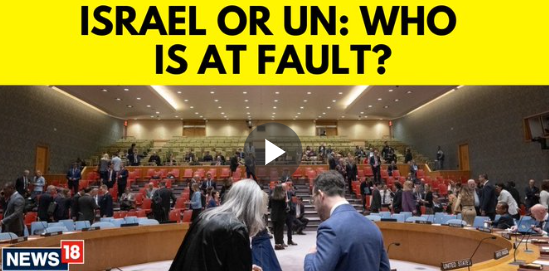Israel is under pressure to get aid into Gaza. Hamas needs their supplies ASAP as they steal most of it and resell it to help their war efforts.
In a dire situation unfolding on the Israel-Gaza border, substantial amounts of humanitarian aid intended for Gaza are stuck just miles away from the needy due to increased lawlessness and logistical challenges. This situation has been exacerbated by a daytime pause in fighting observed by Israel’s military, which, while intended to allow aid passage, has not eased the difficulties significantly.
Just few miles from starving Palestinian families, there lies hundreds of pallets of food as Israel and UN trade blame on movement of goods #Israel #Hamas #Palestine pic.twitter.com/Bb65fbIY9K
— News18 (@CNNnews18) June 22, 2024
Georgios Petropoulos, the head of the UN Office for the Coordination of Humanitarian Affairs (OCHA) in Gaza, reports rampant looting, with up to three-quarters of aid being stolen from lorries shortly after crossing into Gaza from Israel. The looting is attributed to armed gangs targeting the aid deliveries, particularly those carrying valuable items like cigarettes, which fetch high prices on Gaza’s black market. There have also been targeted attacks on fuel deliveries.
The Israeli military, which oversees the Kerem Shalom crossing, insists there are no restrictions on the volume of aid entering Gaza. They argue that international organizations have failed to enhance their distribution capabilities, which has contributed to a backlog of aid. According to Cogat spokesperson Shimon Freedman, these organizations need more trucks, extended working hours, and improved logistics.
On the legal and political fronts, the International Court of Justice has issued provisional measures twice, urging Israel to facilitate humanitarian aid to Gaza amid allegations of violating the 1948 Genocide Convention—an accusation Israel vehemently denies.
Despite claims of inefficiency directed at aid agencies, these organizations counter that their operations are hampered by the active war zone conditions, Israeli bombings, and the destruction of infrastructure, all of which diminish their capacity to distribute aid effectively. Sean Carroll, president of American Near East Refugee Aid (Anera), points out that despite increasing manpower, the war conditions, lack of fuel, and impassable roads make the distribution of goods nearly impossible.
The situation reached a breaking point in May when Israel’s military invasion targeted Hamas battalions in Rafah, leading to massive displacement and blocking access to key aid storage and distribution centers. This has forced aid rerouting to Kerem Shivam, but even this has proven problematic as Egypt has closed the Rafah crossing citing safety concerns for humanitarian operations.
The system’s breakdown is starkly illustrated by the fact that daily aid truck entries into Gaza dropped by 42% in May and fell further in June. Local residents in Khan Younis report receiving no aid for nearly three weeks, highlighting the desperate situation as people resort to looting incoming aid lorries.
🇮🇱Gaza aid depot where food waits as Israel and UN trade blame
It is Israel’s responsibility as the occupying power in the Gaza Strip to restore public order and safety in the Palestinian territory so humanitarian aid can be delivered, the United Nations said on Friday. U.N.… pic.twitter.com/B8bFveKDfx
— X News Journal (@XNewsJournal) June 22, 2024
Israeli authorities have attempted to alleviate shortages by allowing more private sector imports and opening additional crossings, but these measures have not sufficiently addressed the high prices and scarcity faced by the general populace. A costly U.S. military initiative to establish a floating pier has also failed, adding to the challenges.
Political resistance within Israel to addressing Gaza’s food crisis has sparked significant controversy, with figures like the far-right Finance Minister publicly criticizing aid efforts.
Major Points:
- Hundreds of pallets of humanitarian aid are stuck on the Israel-Gaza border, unable to reach needy Palestinians due to increased lawlessness and logistical issues.
- Rampant looting has been reported, with armed gangs targeting lorries carrying aid, particularly those with valuable items like cigarettes, significantly impacting the distribution of supplies.
- Despite claims from the Israeli military that there are no restrictions on the amount of aid allowed into Gaza, aid agencies argue that war conditions and damaged infrastructure severely limit their distribution capabilities.
- Political resistance within Israel to addressing Gaza’s food crisis has exacerbated the situation, with significant divisions emerging between government officials and military directives regarding aid delivery.
- The situation is critical in places like Khan Younis, where locals report no international aid received for weeks, highlighting the desperate circumstances faced by displaced Palestinians.
Susan Guglielmo – Reprinted with permission of Whatfinger News



